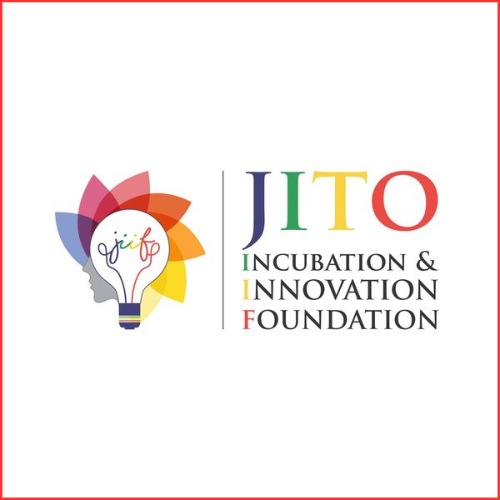The Startup India system launched by the Indian Government is helping a lot of entrepreneurs to formulate a successful pathway for business in India, The ultimate goal of this plan is to bolster an efficient ecosystem that encourages and empowers startups and accelerates innovation in India.
This will lead to sustainable employment opportunities along with impressive economic growth in our country. Furthermore, the Government of India has also launched the ‘Atma Nirbhar Bharat’ program and the ‘Make in India’ campaign to transform India into a global hub for manufacturing and export.
With such dominant efforts, India is now the third-largest ecosystem for startups in the world. There are more than 100 unicorns in this country along with almost 80,000 startups. Such development holds a pivotal factor due to the policies and schemes offered by the Indian Government.
The Indian Government has also been providing several pathways for financial support and capital to fund the startups. According to certain eligibility, startups can redeem many benefits from the Startup India Action Plan which can come with tax incentives coupled with various exemptions, low-interest rates loans, programs for skill development, prioritizing startups that are more focused towards public procurement, and many more.
Check out these schemes offered by the Government of India for startups and businesses-
1. ASPIRE- A Scheme that promotes Innovation, Entrepreneurship along with Rural Industries
Under this scheme, the objective was to build several technology centers and incubation hubs across the whole country. This was strategized for promoting entrepreneurship and expedite innovation for meeting several social needs in the industry of agro-business.
The scheme also provides financial assistance for building livelihood incubators for business or technology incubators by providing a one-time offer of a full grant to bear the manufacturing cost of a plant along with all machinery, except for land and other infrastructure or a total sum of Rs. 100 lakh, whichever is feasible.
Our country India is still heavily dependent on agriculture and a large portion of the population has their lives circled around agriculture in the rural regions of India. This scheme aims to create jobs along with making several enterprises from the agriculture industry.
The entrepreneurs are also provided knowledge by this scheme for creating a company and emerge as successful entrepreneurs and ensure long-lasting sustainability. The district-level economic development is focused by this program.
2. Pradhan Mantri Mudra Yojana-
This scheme by the Government of India facilitates Micro Units Development and Refinance Agency Ltd. (MUDRA), a finance company from the non-banking sector, to offer assistance in the development of micro enterprise division in our country.
Financial support provided by MUDRA to several banks and institutions of microfinance, forwarded a loan amount of about Rs. 10 lakh to diverse micro units. There are three categories of dividing the loans, such as Tarun, Kishor and Shishu, which describes the developmental phase of the group along with requirements of funding and years of business.
The interesting fact about the loan is that there is no collateral required for the amount and it is given to non-corporate and companies not in the agro industry or several small enterprises. By giving this loan, the objective is to generate employment or generate income. Such loans are given to street vendors, traders, shop owners and various service providers.
There is also the availability of travel vehicles along with offering several loans for working capital. This scheme surely motivates the journey of entrepreneurship.
3. Support for International Patent Protection in Electronics and Information Technology (SIP-EIT)-
The SIP-EIT initiative was launched by DeiTY or the Department of Electronics and Information Technology. The aim of this scheme was to provide government financial support to technology startups along with MSME (Micro Small and Medium Enterprises) in our country to file global patents.
Such efforts lead to further innovation, coupled with establishing brand recognition and creating more facts about the relevance of global intellectual protection of property. The funding is provided to the information and communication technology division which allows an enterprise to apply for this scheme at any stage while filing international patents.
The limits of reimbursement is figured at about 50% of the total cost of filing the patent including the application process or Rs. 15 lakh directed towards each invention, whichever is less.
4. Multiplier Grants Scheme (MGS)-
The Multiplier Grants Scheme is launched by the Department of Electronics and Information Technology (DeiTY) in collaboration with top-quality academic institutions that focuses on research and development of various packages coupled with diverse products.
The objective of this scheme is to build a robust partnership with industry and educational institutes, encouraging the creation of indigenous products and the packages along with bridging the gap existing between proof-of-concept and global industrial purposes.
If there is a product that requires research and development and offers scope of commercialization, the scheme by the Indian Government will grant twice the funding provided by that industry.
The limit of funding for an industry is a maximum of Rs. 2 crore for a project with the required duration of about 2 years. The consortium of multiple industries allows a funding of Rs. 4 crore with a required duration of about 3 years.
5. Credit Guarantee Fund Trust for Micro and Small Enterprises (CGTMSE)-
This scheme is a joint collaboration of the Ministry of MSME (Micro Small and Medium Enterprise) along with Government of India and SIDBI or the Small Industries Development Bank of India.
The initiative accelerates the delivery of the credit system and helps in seamless operation of credit flow in the sector of MSME. The loans provided by this scheme are highly subsidized and require no collateral by the startups, micro enterprises and small businesses.
Every borrower who is eligible can avail non-fund based service and fund based facilities of about Rs. 200 lakh, which is provided by the Small Industries Development Bank of India (SIDBI).
The area of focus of this scheme lies in the manufacturing and service industry with agreement of the loan coming as a working capital or as a term loan.
6. Single Point Registration Scheme (SPRS)-
The Single Point Registration Scheme is a developmental initiative by the National Small Industries Corporation (NSIC) for assisting the MSE sector. The Government of India is one of the largest purchasers of a diverse range of goods.
With this scheme, the motive was to increase purchases from the small-scale division of the country. Upon choosing this scheme, the National Small Industries Corporation formulates registration of the MSE, who are eligible for participating in the several purchases of the government without the EMD or Earnest Money Deposit.
The Earnest Money Deposit is the money taken from bidders to ensure that they are well-devoted towards the project.
Under SPRS, the MSEs with a registration of NSIC are exempt from giving the Earnest Money Deposit. There are several other benefits like tender participation along with tenders without bearing an expense and also procurements from several MSEs.
There are about 358 categories of various goods that are reserved for purchasing from the MSEs. The government has also noted a minimum limit of about 25%, which are made by several ministries, public sector undertakings that are from MSEs specifically.
7. Extra Mural Research or Core Research Grant (CRG)-
The Extra Mural Research or Core Research Grant has been in the industry for about four decades. It was formed after the establishment of the Science and Engineering Research Board or (SERB). This scheme continues to be very valuable and relevant in the world of research.
Under this scheme, the research labs, educational institutions, and research and development teams get to continue studying all domains of science and in the field of engineering. This grant motivates the scientists to move forward with a goal towards scientific breakthroughs.
8. Scheme of High Reward Research-
This scheme aims to inspire new ideas and research proposals which are set to create enormous positive impact in the field of science and technology. This scheme encourages proposals that are highly risky but bring massive value to society if successful in the scientific domain.
These projects might include theoretical and projections in experimental methods that challenge current hypotheses and bring forward emerging technologies. The limit of funding to this project is not set and covers several consumables, equipment, traveling expenses and many more.
This funding can be provided for about 3 years which can also be extended to about 5 years.
9. Design Clinic Scheme-
The Government of India understands the pivotal role that innovation plays in developing our society. They encourage every MSME to operate on a design-focused approach for growing their startup. For excelling in innovation and sustainable development in designing goods, the Ministry of Micro Small and Medium Enterprises (MSME) encourages startups to focus on training and skills development.
The Government of India also wants to extend funding of up to Rs. 60,000 for staying present at the seminars and about Rs. 3.75 lakh of the cost of the seminar that is held by MSME.
With these initiatives, startups and entrepreneurs can educate themselves with the latest practices on design and create a professional network with other innovators and get to know more about design theories and how to stay at the top of the competition with innovative designs.
The schemes and policies introduced by the Government of India have been proving to be a Holy Grail for innovators to challenge themselves for further sustainable and economic development. These efforts have inspired entrepreneurs to delve into the research aspects of their startups and gather relevant insights to develop their businesses. We have the results in the global trajectory that India has now become the third greatest nation in the world to provide a stellar ecosystem for startups.















